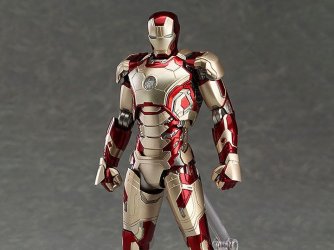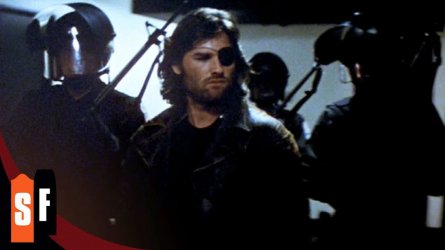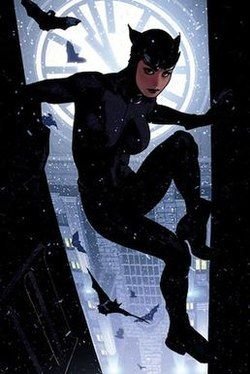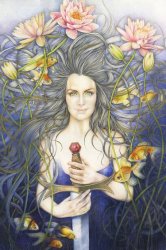- Sep 22, 2013
- 4,956
- 250
- 85
Does consumerism make room for sociological folklore?
This merchandising-propaganda vignette was inspired by Capitalism: A Love Story.
Signing off,

====
A Dutch-Algerian immigrant living in New York named Ajay Satan was a comic book artist and collector of American memorabilia such as baseball cards and comic books. After Super Bowl 52, when the underdog Philadelphia Eagles downed the titan-like New England Patriots 41-33, Ajay realized that sports-marketing catered to 'underdog folklore' since Americans loved 'folk-tales' about pedestrian miracles. Ajay purchased a vintage Wade Boggs Topps baseball-card and blogged on the Internet, costumed as a 'capitalism vigilante', about Philadelphia sports and New England sports merchandising after the thrilling Super Bowl 52.
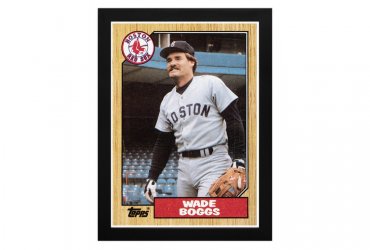
Ajay understood that Americans were intrigued by sports-related marketing and sports-culture films such as Any Given Sunday (Al Pacino) and Jerry Maguire (Tom Cruise) captured this 'capitalism-ethos.' We might see the wife of New England Patriots (NFL) QB Tom Brady wear a Boston Red Sox fan-jacket, just because Boston is in New England and fans want to see 'area-sports marketing optimism.' Ajay appreciated all this 'cultural folklore' and wondered if there were connections between modern-era fanfare-spirit and colonial-era (Dutch Pennsylvania) evangelism. After all, America should have a contiguity, right? Ajay wanted to place marketing in the context of U.S. history 'folklore' (e.g., Boston Tea Party).

Ajay took photographs of t-shirt stores in Boston that sold Red Sox fan t-shirts to women/girls. These stores surely captured the modern capitalist spirit, something that anti-capitalism terrorists despised (e.g., ISIS, Cobra). Ajay wondered how this 'capitalism spirit' was imprinted onto marketing-consciousness American comic book characters such as Richie Rich, Kingpin, and Poison Ivy. Was capitalism some kind of 'story'? How was Dutch Pennsylvania of the Quakers 'respected' by the marketing of Quaker Oats breakfast-foods in modern-day supermarkets?
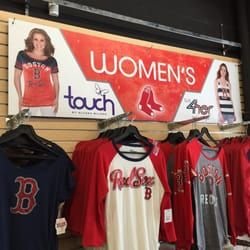
Ajay roamed around Boston and interviewed people on the streets to see what they thought about Red Sox fanfare and merchandising. He asked women, children, men, senior citizens. He took notes about their responses and made mental-notes about links between commerce, traffic, consumerism, and American culture. Was capitalism merely a 'toy' or was it also some kind of 'imagination podium'?

Ajay sat in his hotel-room blogging on the Internet about censorship, pornography, and merchandising (and also sports-marketing) in the modern era while enjoying Pennsylvania Dutch Candies' Dutch treats Peanut Butter Pillows treats. Ajay's colorful posts caught the attention of celebrities Tom Hanks and Tom Cruise who wanted to meet Ajay after reading his posts about 'capitalism-ethos' and Ajay told them he was staying at the Courtyard Marriott hotel in Lowell (Massachusetts). They zoomed over there to talk with him, since Ajay was a respected comic book artist, to speak with him; Hanks and Cruise were involved in some movie-merchandising and wanted Ajay's input.

Hanks and Cruise commissioned Ajay to make a series of capitalism-themed comic book stories which focused on 'sub-culture' avatars or anti-heroes, and Ajay thought it was a great idea. Ajay told Hanks/Cruise he'd make an avatar-pairing story series about James O'Barr's The Crow (a romantic resurrected urban-gothic avenger) and Clive Barker's Pinhead (a demonic underworld messenger of purgatory) regarding Boston sports-merchandising and its impact on American idealism. Obviously, the Crow would symbolize optimism, while Pinhead would symbolize cynicism. Hanks/Cruise told Ajay Satan that if these Crow/Pinhead capitalism stories/comics became popular, they'd help him sell Crow and Pinhead t-shirts inspired by the comics!
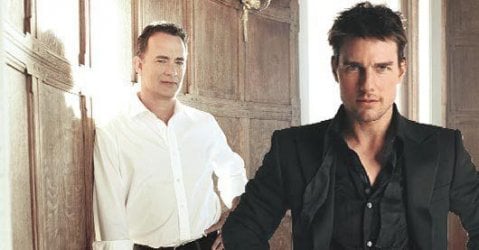
The Crow was a very sensitive but mystical 'anti-hero' who tackled some of the worst elements imaginable in modern corrupted/corruptible cities. The Crow was a man who was killed by henchmen and came back from the dead, guided by the spirit/eyes of a real-life crow who became his only friend, and vowing vengeance for the sake of justice. The Crow was an American folkloric symbol of the social fascination with justice/vigilantism daydreams and was penned by the creative American writer/illustrator James O'Barr after the artist's comics gained recognition when avant-garde film-maker Alex Proyas adapted the comics into the cult-favorite film The Crow starring Brandon Lee (son of martial-arts film-legend/celebrity Bruce Lee).
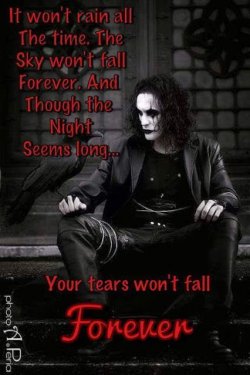
Pinhead was a demonic messenger of pain and purgatory. Envisioned by horror-story artist Clive Barker for his film-series Hellraiser (about a Pandora's-box which 'releases' the forces of Pinhead). Pinhead walked among men while they dreaded death and delivered images of pure eeriness and sadomasochistic self-destruction, in the name of anarchy and godlessness. Pinhead was obviously a folkloric avatar symbolizing a social fascination with other-worldly metaphysics and anarchism in general, a 'trophy' of free-speech theatrics, if you will. Pinhead stories were adapted into comics which became as popular among fans as James O'Barr's Crow comics.
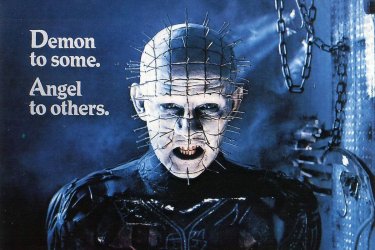
Ajay penned stories about the Crow and Pinhead fighting over the right to merchandise Boston Red Sox fan-gear to American women, in the name of 'gender-focused consumerism' and hence unbiased capitalism. Since capitalism was defamed as a sort of 'profit-driven system,' the fact that women would don sports-merchandise and fan-gear gave consumerism a more 'fertile' face, which is why the Crow was fighting with Pinhead regarding this sociocultural issue. Ajay's comic stories about Crow and Pinhead became extremely popular and were featured on Kevin Smith's show Comic Book Men; that's why Hanks and Cruise decided to help Ajay begin marketing fan t-shirts featuring Crow and Pinhead visages. Which 'brand' of t-shirt would become more popular in Boston, Crow or Pinhead?
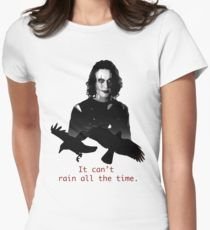
Boston could be categorized as a 'moderate-Democrat city' with many schools/colleges and many pedestrians and consumers. It was a symbolic American city with a rich history. Massachusetts was as 'fabled' as Pennsylvania, and Ajay noted how the Super Bowl 52 engagement between the New England Patriots and Philadelphia Eagles captured a modern-day fascination with 'area-culture based street-spirit.' As Crow and Pinhead t-shirts sold like wildfire, capitalism-critics (including Rush Limbaugh and Howard Stern) suggested that all this consumerism/media chatter, under the umbrella of 'TrumpUSA', was in some way an 'ideology revolution' akin to the Little Orphan Annie era.
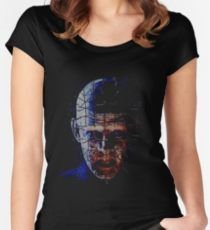
Hanks and Cruise became secretly fascinated and wanted to see which brand of t-shirts would sell more, especially among women, Crow or Pinhead, in Boston. Hanks also wanted to see which brand of t-shirt would sell more among women in Philadelphia. Hanks and Cruise decided to purchase a DVD of Super Bowl 52 and watch the game together and note how Ajay Satan's comic book series about Crow/Pinhead represented a truly modern interest in marketing-oriented intelligentsia. Cruise personally preferred Pinhead, but Hanks liked O'Barr's Crow.
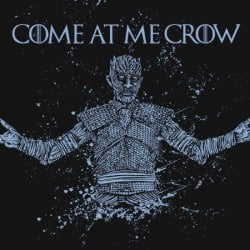
TRUMP: The First Lady is a big fan of Ajay Satan!
CARTER: Yes, Crow and Pinhead t-shirts have sold well.
TRUMP: Consumerism is a 'fine theater.'
CARTER: Capitalism-critics wonder if theatricality is deception...
TRUMP: Nah; capitalism is based on trust, not childishness.
CARTER: That's not what Cobra (terrorists) think.
TRUMP: I heard Tom Hanks and Tom Cruise are producing a documentary about Boston.
CARTER: Sounds intriguing...is Ajay involved in the project?
TRUMP: I'd imagine he'd want to be, now that he's an 'American folklore' expert.
CARTER: There's something 'creative' about market-diaries.
====

{Ajay Satan}

This merchandising-propaganda vignette was inspired by Capitalism: A Love Story.
Signing off,

====
A Dutch-Algerian immigrant living in New York named Ajay Satan was a comic book artist and collector of American memorabilia such as baseball cards and comic books. After Super Bowl 52, when the underdog Philadelphia Eagles downed the titan-like New England Patriots 41-33, Ajay realized that sports-marketing catered to 'underdog folklore' since Americans loved 'folk-tales' about pedestrian miracles. Ajay purchased a vintage Wade Boggs Topps baseball-card and blogged on the Internet, costumed as a 'capitalism vigilante', about Philadelphia sports and New England sports merchandising after the thrilling Super Bowl 52.

Ajay understood that Americans were intrigued by sports-related marketing and sports-culture films such as Any Given Sunday (Al Pacino) and Jerry Maguire (Tom Cruise) captured this 'capitalism-ethos.' We might see the wife of New England Patriots (NFL) QB Tom Brady wear a Boston Red Sox fan-jacket, just because Boston is in New England and fans want to see 'area-sports marketing optimism.' Ajay appreciated all this 'cultural folklore' and wondered if there were connections between modern-era fanfare-spirit and colonial-era (Dutch Pennsylvania) evangelism. After all, America should have a contiguity, right? Ajay wanted to place marketing in the context of U.S. history 'folklore' (e.g., Boston Tea Party).

Ajay took photographs of t-shirt stores in Boston that sold Red Sox fan t-shirts to women/girls. These stores surely captured the modern capitalist spirit, something that anti-capitalism terrorists despised (e.g., ISIS, Cobra). Ajay wondered how this 'capitalism spirit' was imprinted onto marketing-consciousness American comic book characters such as Richie Rich, Kingpin, and Poison Ivy. Was capitalism some kind of 'story'? How was Dutch Pennsylvania of the Quakers 'respected' by the marketing of Quaker Oats breakfast-foods in modern-day supermarkets?

Ajay roamed around Boston and interviewed people on the streets to see what they thought about Red Sox fanfare and merchandising. He asked women, children, men, senior citizens. He took notes about their responses and made mental-notes about links between commerce, traffic, consumerism, and American culture. Was capitalism merely a 'toy' or was it also some kind of 'imagination podium'?

Ajay sat in his hotel-room blogging on the Internet about censorship, pornography, and merchandising (and also sports-marketing) in the modern era while enjoying Pennsylvania Dutch Candies' Dutch treats Peanut Butter Pillows treats. Ajay's colorful posts caught the attention of celebrities Tom Hanks and Tom Cruise who wanted to meet Ajay after reading his posts about 'capitalism-ethos' and Ajay told them he was staying at the Courtyard Marriott hotel in Lowell (Massachusetts). They zoomed over there to talk with him, since Ajay was a respected comic book artist, to speak with him; Hanks and Cruise were involved in some movie-merchandising and wanted Ajay's input.

Hanks and Cruise commissioned Ajay to make a series of capitalism-themed comic book stories which focused on 'sub-culture' avatars or anti-heroes, and Ajay thought it was a great idea. Ajay told Hanks/Cruise he'd make an avatar-pairing story series about James O'Barr's The Crow (a romantic resurrected urban-gothic avenger) and Clive Barker's Pinhead (a demonic underworld messenger of purgatory) regarding Boston sports-merchandising and its impact on American idealism. Obviously, the Crow would symbolize optimism, while Pinhead would symbolize cynicism. Hanks/Cruise told Ajay Satan that if these Crow/Pinhead capitalism stories/comics became popular, they'd help him sell Crow and Pinhead t-shirts inspired by the comics!

The Crow was a very sensitive but mystical 'anti-hero' who tackled some of the worst elements imaginable in modern corrupted/corruptible cities. The Crow was a man who was killed by henchmen and came back from the dead, guided by the spirit/eyes of a real-life crow who became his only friend, and vowing vengeance for the sake of justice. The Crow was an American folkloric symbol of the social fascination with justice/vigilantism daydreams and was penned by the creative American writer/illustrator James O'Barr after the artist's comics gained recognition when avant-garde film-maker Alex Proyas adapted the comics into the cult-favorite film The Crow starring Brandon Lee (son of martial-arts film-legend/celebrity Bruce Lee).

Pinhead was a demonic messenger of pain and purgatory. Envisioned by horror-story artist Clive Barker for his film-series Hellraiser (about a Pandora's-box which 'releases' the forces of Pinhead). Pinhead walked among men while they dreaded death and delivered images of pure eeriness and sadomasochistic self-destruction, in the name of anarchy and godlessness. Pinhead was obviously a folkloric avatar symbolizing a social fascination with other-worldly metaphysics and anarchism in general, a 'trophy' of free-speech theatrics, if you will. Pinhead stories were adapted into comics which became as popular among fans as James O'Barr's Crow comics.

Ajay penned stories about the Crow and Pinhead fighting over the right to merchandise Boston Red Sox fan-gear to American women, in the name of 'gender-focused consumerism' and hence unbiased capitalism. Since capitalism was defamed as a sort of 'profit-driven system,' the fact that women would don sports-merchandise and fan-gear gave consumerism a more 'fertile' face, which is why the Crow was fighting with Pinhead regarding this sociocultural issue. Ajay's comic stories about Crow and Pinhead became extremely popular and were featured on Kevin Smith's show Comic Book Men; that's why Hanks and Cruise decided to help Ajay begin marketing fan t-shirts featuring Crow and Pinhead visages. Which 'brand' of t-shirt would become more popular in Boston, Crow or Pinhead?

Boston could be categorized as a 'moderate-Democrat city' with many schools/colleges and many pedestrians and consumers. It was a symbolic American city with a rich history. Massachusetts was as 'fabled' as Pennsylvania, and Ajay noted how the Super Bowl 52 engagement between the New England Patriots and Philadelphia Eagles captured a modern-day fascination with 'area-culture based street-spirit.' As Crow and Pinhead t-shirts sold like wildfire, capitalism-critics (including Rush Limbaugh and Howard Stern) suggested that all this consumerism/media chatter, under the umbrella of 'TrumpUSA', was in some way an 'ideology revolution' akin to the Little Orphan Annie era.

Hanks and Cruise became secretly fascinated and wanted to see which brand of t-shirts would sell more, especially among women, Crow or Pinhead, in Boston. Hanks also wanted to see which brand of t-shirt would sell more among women in Philadelphia. Hanks and Cruise decided to purchase a DVD of Super Bowl 52 and watch the game together and note how Ajay Satan's comic book series about Crow/Pinhead represented a truly modern interest in marketing-oriented intelligentsia. Cruise personally preferred Pinhead, but Hanks liked O'Barr's Crow.

TRUMP: The First Lady is a big fan of Ajay Satan!
CARTER: Yes, Crow and Pinhead t-shirts have sold well.
TRUMP: Consumerism is a 'fine theater.'
CARTER: Capitalism-critics wonder if theatricality is deception...
TRUMP: Nah; capitalism is based on trust, not childishness.
CARTER: That's not what Cobra (terrorists) think.
TRUMP: I heard Tom Hanks and Tom Cruise are producing a documentary about Boston.
CARTER: Sounds intriguing...is Ajay involved in the project?
TRUMP: I'd imagine he'd want to be, now that he's an 'American folklore' expert.
CARTER: There's something 'creative' about market-diaries.
====

{Ajay Satan}

